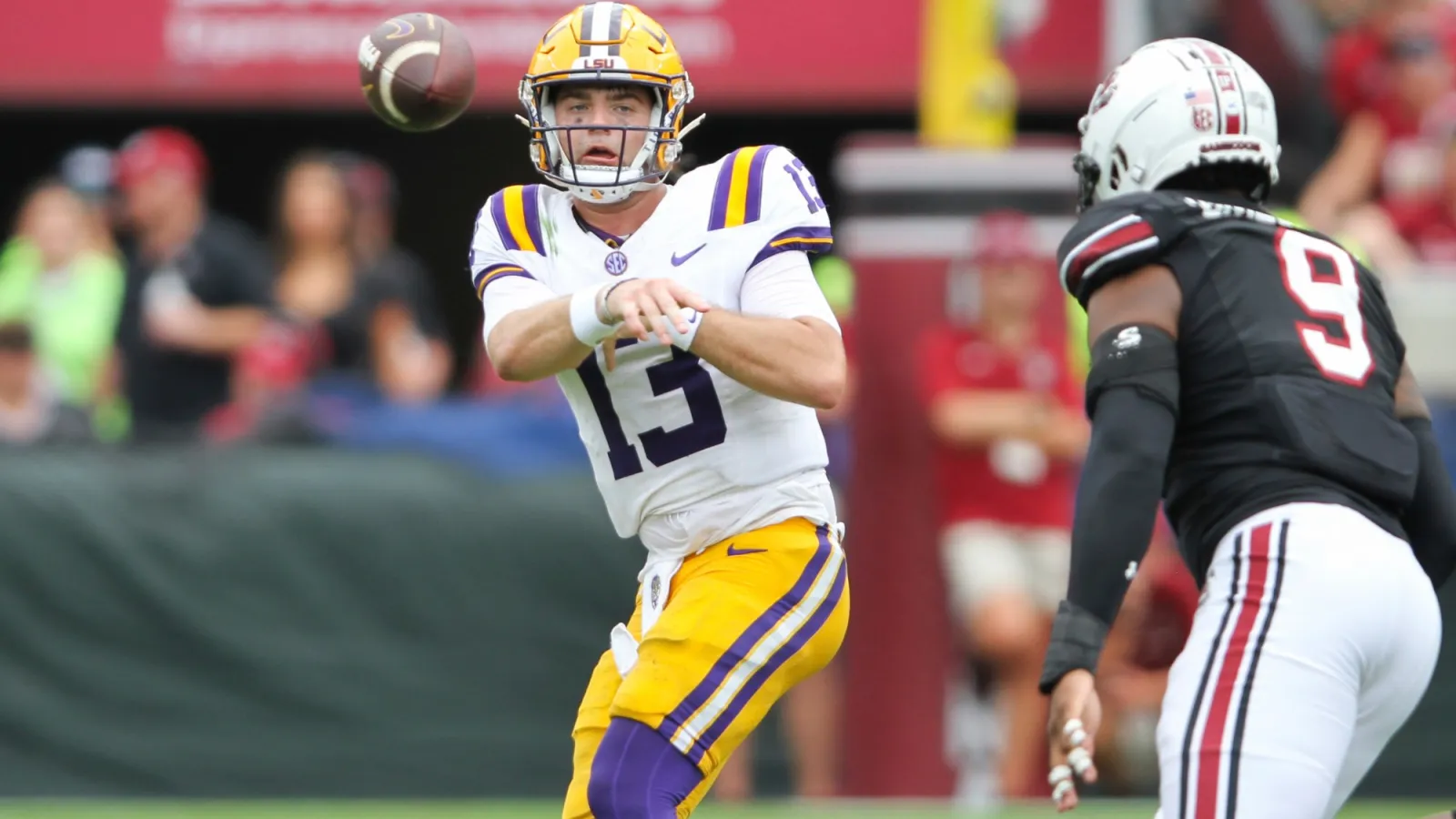College football scheduling isn’t what it used to be. In today’s rapidly evolving landscape, non-conference matchups between Power Four teams are as strategic as they are entertaining. For LSU, the decision to host UCLA at Tiger Stadium is a calculated investment — one rooted in national exposure, strength-of-schedule enhancement, ticket revenue, and long-term brand building. But what exactly is the cost? And why is LSU willing to shell out such a significant amount for a single regular-season game?
The short answer: LSU is paying UCLA a guaranteed $1.65 million for their upcoming visit to Baton Rouge.
That number may raise eyebrows at first glance. After all, it’s not uncommon for schools to pay mid-major or FCS opponents six-figure sums to come to town for a non-conference tune-up. But paying another Power Four program — especially one as historically respected as UCLA — a seven-figure amount? That speaks volumes about the stakes involved in high-profile matchups.
So why would LSU agree to this kind of payout? The answer lies in the multifaceted benefits that such a game brings to Baton Rouge, both on and off the field.
First, there’s the competitive value. Since the introduction of the College Football Playoff, strength of schedule has become a central component in determining postseason contenders. The committee rewards teams that challenge themselves against top-tier opponents, even if the results aren’t always perfect. Hosting a program like UCLA not only gives LSU a chance to prove its mettle early in the season, but also bolsters its resume — win or lose.
Then there’s the fan experience and the financial windfall of a marquee home game. Tiger Stadium, with its capacity nearing 102,000, is one of the most intimidating venues in college football. A matchup against a nationally recognized opponent like UCLA guarantees a sold-out crowd, surging ticket sales, and record-breaking concession and merchandise revenues. Compared to hosting a low-profile opponent that might struggle to fill the lower bowl, the difference in income is significant.
LSU’s Athletic Director Scott Woodward emphasized that this kind of matchup is about more than dollars and cents — it’s about perception. “When fans see UCLA on the schedule, they circle that date. It energizes the fan base, excites our players, and captures national attention. That’s invaluable in today’s media-driven environment,” Woodward said in a recent statement.
Indeed, the broadcast value alone is enormous. The game will almost certainly land in primetime on a major network, delivering millions of eyeballs and showcasing LSU’s campus, program, and community to a national audience. That exposure has a ripple effect, influencing everything from future recruits to university applications and institutional prestige.
But the price tag remains a critical part of the story. LSU’s $1.65 million payout to UCLA isn’t just a show of financial strength — it’s a reflection of market dynamics. As more programs seek to upgrade their schedules, the demand for quality opponents has skyrocketed. With fewer Power Four teams willing to travel for single-game arrangements, the bidding war has intensified.
UCLA, for its part, negotiated from a position of leverage. Though part of the Big Ten now, the Bruins understand their cross-country appeal and the value they bring to a matchup like this. For the university, the trip represents both a recruiting opportunity in SEC territory and a chance to prepare for hostile environments similar to those found in the Big Ten’s more intense venues. The $1.65 million paycheck is not just payment for services rendered — it’s a symbol of respect.
This isn’t the first time LSU has dipped into its wallet for a premium non-conference opponent. In recent years, the Tigers have welcomed or traveled to Texas, Florida State, and Wisconsin — games that offered both competitive tests and major media moments. But this particular deal with UCLA underscores a broader trend: Power programs are increasingly willing to invest in high-stakes matchups rather than schedule easy wins.
That’s partly because college football fans have grown weary of lopsided early-season contests. While blowouts may offer padding for the win column, they don’t move the needle when it comes to fan engagement or playoff consideration. LSU’s willingness to pay top dollar for a compelling September matchup reflects a larger effort to keep the schedule — and the brand — relevant.
There’s also the recruiting angle. A high-profile showdown against a national brand like UCLA draws attention from coast to coast. For LSU, it means showcasing Death Valley to a wider array of recruits — not just those in Louisiana or the Southeast, but in California, Texas, and beyond. The opportunity to host a game with postseason implications in a playoff-like atmosphere can be a selling point on the recruiting trail for years to come.
From a budget standpoint, LSU’s athletic department is in a strong enough position to absorb the cost. With lucrative SEC media rights deals and strong donor support, the program has financial flexibility that many others do not. Investing in a game like this isn’t just viable — it’s strategic.
It’s also worth noting that LSU is not alone in this approach. Across the country, elite programs are locking in home-and-home series and high-value one-off contests at neutral sites. Alabama, Georgia, Michigan, and Ohio State have all taken similar steps, aiming to create must-watch matchups that transcend regional interest and become national events.
Still, not every Power Four program is willing to accept a one-time road trip without reciprocity. The fact that UCLA is coming to Baton Rouge with no return leg scheduled is a testament to both LSU’s negotiation prowess and the financial allure of the deal. It also shows that for the right price, even historically proud programs are willing to forgo a home game.
Of course, the decision does carry some risk. Should LSU lose the game, it could complicate their path to the College Football Playoff. Injuries, poor execution, or simple bad luck could turn a $1.65 million investment into a regrettable gamble. But that’s the nature of competitive scheduling in the modern era — risk and reward go hand in hand.
From the perspective of the fans, though, it’s a no-brainer. The buzz surrounding the UCLA game is already palpable, with social media chatter, local media coverage, and ticket resale prices all reflecting a heightened sense of anticipation. Tiger Stadium at night, packed to the brim with fans in purple and gold, facing off against a nationally televised opponent — it’s the kind of atmosphere that defines the LSU football experience.
And for LSU administrators, that’s the ultimate goal. Whether it’s in revenue, reputation, or recruiting, the return on investment from this matchup could far exceed the initial price tag. If the Tigers perform well — and win — the game could be a springboard to an unforgettable season. If not, it still sends a clear message: LSU is committed to being one of the premier programs in college football, not just in wins, but in ambition.
As the NIL era, the transfer portal, and expanded playoff reshape the sport, schools like LSU understand that visibility, competitiveness, and excitement are more valuable than ever. By securing a game like this, they’re not just buying a football contest — they’re buying a moment, a platform, and a place in the national conversation.
Ultimately, the $1.65 million price tag isn’t a burden. It’s a bet — one LSU is more than willing to make. Because when it comes to building a championship culture, every detail counts. And sometimes, it starts with a single line on the schedule.



